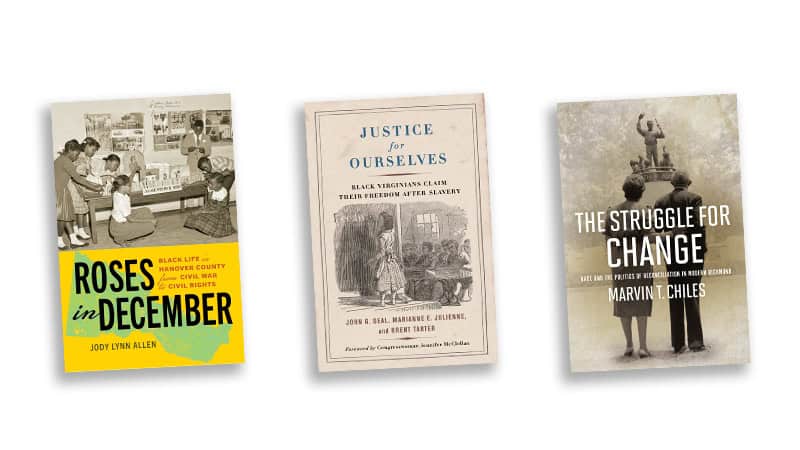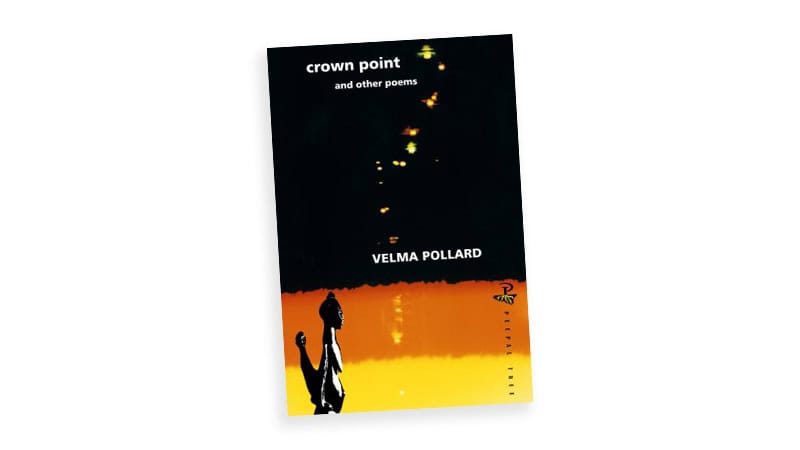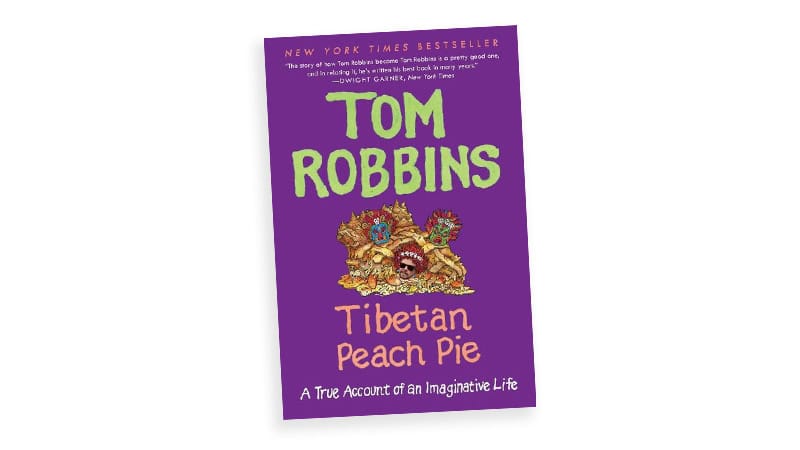The Forum Files (Book Excerpts)
From THE FORUM FILES: THE STORIES BEHIND THE RICHMOND FORUM by Ray McAllister.
“A city can point to a number of things it can be proud of, that it does better than other cities,” a Richmond investment firm executive, Michael S. Beall, said in a 1995 magazine article. “Boston has a marathon, Richmond has a Forum.”
Richmond has long known what it has in its forum—or rather, in its three forums. Two now little-known predecessors ultimately closed their doors. But they had laid the groundwork for what is now three decades—and counting—of The Richmond Forum.
In 1936, while the original forum was in its infancy, a local newspaper urged full support so that “our democratic institutions will be promoted and strengthened through public forums of this sort.”
In 1967, just three years after the start of the second forum, The New York Times noted it was already “the largest lecture forum in the nation.” In 1978, a national agency for speakers called it then the nation’s best “in terms of audience turnout and the caliber of speakers.”
In 1987, The Richmond Forum, the third incarnation, was begun, quickly reaching and often exceeding the standards of the previous two. Richmond had the gold standard—the Boston Marathon of the nation’s forums.
But … a forum? … in Richmond? … and why so good, anyway?
THE [THIRD] FORUM was up and running in 1987.
A week before the opener, the Richmond Times-Dispatch, under the headline “Welcome Back,” editorialized: “For those who mourned the demise of the Richmond Public Forum in 1980, the organization’s resurrection is splendid news. During the 17 years of its previous existence, it enlivened, enlightened and, at times, enraged the city with provocative programs featuring distinguished political leaders, journalists, authors, entertainers, social commentators and speakers from many other fields. Now, as [The] Richmond Forum, it intends to follow the same format.” …
Ted Koppel, award-winning anchor of ABC News’ “Nightline,” had the [opening-night] audience howling with laughter, both the Richmond Times-Dispatch and The Richmond News Leader would report. His first words onstage, “I am delighted to be able to have this opportunity to be here tonight,” were delivered in a dead-on impersonation of Henry Kissinger. He used his best Richard Nixon voice to relay the president’s remarks when asked his opinion of the Great Wall of China: “One can only say, upon looking at this wall, that it is truly a great wall.” …
SEASON TWO BEGAN with one of America’s biggest names: Oprah Winfrey. …
For her introduction, [Forum President Ralph] Krueger called to Hawaii for help. Live, over the Mosque loudspeaker, came the famous voice of actress/comedienne Carol Burnett. Burnett was a fan, too. Oprah, she said, was smart, inquisitive, and funny.
Oprah talked about her beginnings in poverty, her spiritual beliefs, highs and lows, a TV station’s efforts to change her looks, her weight battles—“I diet for a hobby,” she said—and the price of fame. …
To [one] questioner, she said she didn’t study to be an actress. She simply believed she could be one. When she was thirteen, she wanted a new pair of glasses that her mother said they could not afford. So young Oprah staged a fake burglary, knocking things off her home’s tables and breaking her glasses. She told police that not only had there been a break-in, but she now had amnesia, too. It was an audacious performance. What followed was a pleasant afternoon at the hospital with concerned doctors and doting nurses. “This is great,” she thought. “This is for me.”
MIKHAIL GORBACHEV WAS THE ONLY speaker during her years at the Forum who was not represented by a lecture agent, Margaret Pace remembers. Getting the Soviet Union’s last Communist leader, the reformist who had served from 1985 to 1991, before anyone else, was a feather in the Forum’s cap.
It wasn’t easy, but the Forum nailed it down in 1992, the year before the program. “I can hear Ralph hang up the phone and start yelling, ‘We got Gorbachev! We got Gorbachev!’—jumping up and down,” Pace says. …
Mark Pounders remembers the former Soviet leader wasn’t at all what he expected. Pounders’ company chauffeured people for the Forum and was a program sponsor, so he had the inside story on Gorbachev’s evening:
“He drove the Secret Service crazy because he would ask our driver to stop so that he could get out of the car and meet Americans. He would just jump out of the car and say ‘hello’ to random passersby.
“It was the most entertaining and heartwarming experience I can recall—a world leader who was literally like a kid in a candy store meeting everyday people, at odds with the very strict and aggravated Secret Service, and there was nothing they could do. I remember folks on the street being in complete disbelief at who was walking up to them. I’ll never forget it, how approachable the man was. And I never looked at him in the same way from that day on.”
After dinner, Gorbachev asked to go in through the front door of the Mosque, rather than through the usual speaker’s entrance backstage. He didn’t ask so much as demand. Forum officials said they didn’t have security for that. He and his wife walked in, anyway, up the aisle past the seated guests. …
Gorbachev was introduced that night by [Krueger, who was by then near death]. It was a struggle. Immediately after finishing, the Forum president had to walk offstage and collapse onto a couch next to the oxygen machine.
Onstage, Gorbachev ridiculed the power struggle between his successor, Boris Yeltsin, and the Russian parliament. Immediate free elections, not a referendum, were needed. “For almost 100 days now, we have seen scenes of almost Shakespearian passion,” Gorbachev said through an interpreter. “We cannot waste an hour.” …
Less than one month later, Ralph F. Krueger Jr. was dead.
FINDING A REPLACEMENT for the inestimable Krueger was not necessarily easy but it was done quickly. After going through ninety applications and conducting six interviews, the Forum had its new man. Edward W. Rucker, forty-year-old director of development and government relations for the Virginia Foundation for the Humanities and Public Policy in nearby Charlottesville, was announced as the new president in September 1993, only four months after Krueger’s death. …
The 1993-94 season was already set, with a typically varied, big-name lineup, highlighted by former President George H.W. Bush and comedian Bob Hope. But the season kicked off in November in memorable fashion, as well. Former Governor L. Douglas Wilder presented a portrait of the late Ralph Krueger, drawn by artist Bill Nelson, to his widow, Mary Jo Krueger.
Bush, the first former president to appear at a Richmond Forum, did so on February 19, 1994. He said it was his third appearance in the city. He had first come with the Yale baseball team nearly a half-century earlier, to play the University of Richmond in either his junior or senior year. “I think we won, and that was fun.” He came again to the university in 1992 for a presidential debate—“and that was not fun,” he said, drawing laughs. The debate included Bill Clinton and Ross Perot; Clinton would defeat Bush in the 1992 election.
Actually, Yale records show his team lost 8-7 to UR on March 31, 1947, as well. But Yale had defeated the University of Virginia two days earlier in Charlottesville. …
Bush said he would avoid criticizing his successor, Clinton, that night. But he did claim credit for the improving economy and for Middle East Peace initiatives. He also defended his decision to abort Operation Desert Storm and declare victory, though American troops could have proceeded into Baghdad. He always used a three-point military test, he explained: “What’s the mission? How do you do it? How do you get out? … I remember Vietnam. One of those in a century is too many.”
Bush said he was happy in retirement. He could play golf without reporters around. “Now that I’m no longer president, it’s amazing who many people beat me.” …
NOT ALL IMPORTANT MOMENTS of The Richmond Forum occur at the Forum.
On March 18, 2000, Archbishop Desmond Tutu, winner of the 1984 Peace Prize, gave an inspiring speech on spiritual values, materialistic possessions, Mother Theresa, the human spirit, the Tiananmen Square Massacre, Nelson Mandela, God’s creation of human masterpieces, equal respect for all religions, the Dalai Lama, and the ordainment of women. It was an emotionally exultant speech that brought the Forum crowd to its feet in sustained applause and left the moderator to remark: “Tonight, I have been standing on holy ground.”
But Tutu himself had had a special moment in Richmond, unknown to most in the audience.
That afternoon, Tutu had slipped away virtually alone to visit the statue of Arthur Ashe on Monument Avenue. Richmond’s Ashe, who had overcome racism in his hometown, had gone on to become a world-renowned humanitarian, scholar and, of course, tennis champion. He had died seven years earlier of AIDS contracted from a blood transfusion. This statue had, with great controversy, been erected on an avenue previously dedicated only to Confederate war heroes.
Tutu stayed for a moment. Then he returned to his car, with three quick photographs snapped by the Forum’s driver the only indication he had been here. …
TONY BLAIR KICKED OFF the [2007-08] season. Upon [meeting new Forum Executive Director Bill Chapman], the former British prime minister said, “I understand this is your first program.” Chapman kidded, “Yes it is. So, don’t let me down.” Tickled, Blair shared the entreaty during his dinner remarks. Blair, the Forum season’s most requested speaker, did not disappoint. During the Q&A, moderated by former Governor Gerald L. Baliles, Blair said global alliances based on the U.S. and British values of freedom and justice are necessary to solve the world’s problems. “Don’t stop leading. People expect America to lead.” …
THE FORUM IN NOVEMBER 2009 got an early look at Scientist Neil deGrasse Tyson, not yet as famous as he would become but regaling nonetheless. Tyson’s combination of science and entertainment was a winner. He seemed at home, taking his shoes off onstage, then staying at the post-program reception until the wee hours of the morning, being timed as he solved a Rubik’s Cube and being interviewed by a high school student.
Tyson’s appearance had been the first at which the Forum’s new Student Viewing Room was used. About 100 Boy Scouts and astronomy students from Monacan and Godwin high schools watched a closed-circuit presentation of Tyson’s remarks. As would become Forum custom, Tyson went to the room to talk with the students before the program and again during intermission.
Tyson gave the night a thumbs-up afterward. “The hospitality was a delight (although I’m told that’s just normal for Virginia!),” he wrote the Forum. He credited the Forum for its regional support, legacy, and new viewing room with enthusiastic students—“I can see that concept growing in the future.”
But Tyson had one lament in an era when America’s science lead had dwindled. “I notice from the list of past speakers that scientists are uncommon. Carl Sagan, exactly 20 years ago. And just a few others since then.” The allure of performers, statesmen and the like was undeniable, he conceded, but “if even one in ten of your invitations [went] to a scientist or technologist, that would go a long way in serving this desperate social need.” …
LIBERIAN PRESIDENT Ellen Johnson Sirleaf, the [November 2010] kick-off-speaker to the [25th] anniversary season, became the first head of state to address the Forum while still in office.
Adding to the news value, the 72-year-old president had abruptly dissolved her cabinet the day before boarding a flight from Monrovia to Richmond, replacing all members but one. “Complacency had set in a bit,” Johnson explained at the Forum, her first public statement on the startling housecleaning. The Harvard-educated economist told the audience that her country needed maximum results; she wanted cabinet members to reflect and set new goals. “The way to do that was something drastic.” She said she expected many of the “young, dynamic and vigorous” cabinet members would be back. “The others, I don’t know about.” …
BY NOVEMBER 2011, THE POSSIBILITY OF A BLOCKBUSTER 2012-13 season was beginning to take shape. Both President Bill Clinton and film director Steven Spielberg were being pursued, though Chapman was under no illusion the Forum could get both. Either one would be a coup.
By January 2012, however, Clinton was on board. And, after an initial “no thank you,” conversations with Spielberg’s office had gotten serious—so much so that Chapman went to the board to seek approval of an increase in the speaker budget … just in case. The board enthusiastically agreed. …
Spielberg, too, would commit. Chapman later would tell the Times-Dispatch: “This season is an embarrassment of riches. We’ve raised the bar—maybe a little bit too high.” …
The truth is, Chapman says now, they had an in. Historian Doris Kearns Goodwin, who appeared twice before—and who was the author of Team of Rivals, the basis for Spielberg’s movie, Lincoln—was a fan of the Forum. …
The panel of Spielberg, screenwriter Tony Kushner and historian Goodwin—moderated by actor/producer Tim Reid, a key figure in Virginia’s growing film industry—was one of the best received and most publicized in Forum history. It was also the first Forum since the series re-founding in 1987 to be broadcast in its entirety on local public television and the first ever to be shared online. …
Onstage, Spielberg said local help in filming earlier movies led to considering the area again, In addition, he said, Virginia offered tax incentives and then-Governor Bob McDonnell talked with him about the “healing process” necessitated by slavery in the former Confederate capitol. Moreover, because there’s more respect for history on the East Coast than on the West Coast, it’s easier filming historical pieces here, Spielberg said. Except for digitally taking out overhead wires, the Petersburg of today performed without alteration as the Petersburg of yesterday.
The director revealed one personally disheartening moment during the shoot. “I dropped a pen knife in Petersburg,” said Spielberg, who attained the rank of Eagle Scout as a Boy Scout. “It said, ‘Boy Scouts of America, Troop 294, Roosevelt Council.’ ” He clearly missed the knife, and Chapman referenced the loss in a letter afterward, as did Spielberg in his reply.
Ray McAllister was BOOMER’s editor. Contact him at ray@raymcallisterbooks.com. For more on The Forum Files, visit theforumfiles.com or RayMcAllister.Books.com.


